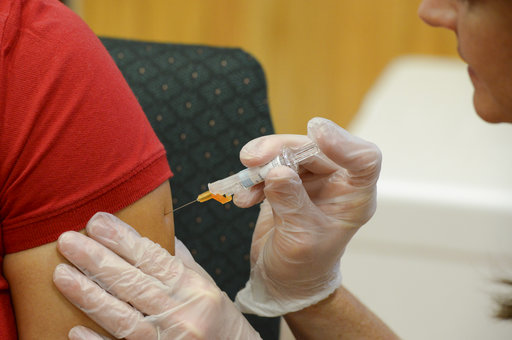An HIV-prevention program called TelePrEP is putting Iowa in the lead for such prevention. The program allows patients across the state to seek preventative medicine and receive professional consultation over a Skype-like video messenger called ‘Vidyo.’
By Madeleine Neal
In the state of Iowa, a new program, TelePrEP, might not only save patients’ time but also their lives.
TelePrEP is a telehealth program, which means it uses telecommunications technology. PrEP, which stands for Pre-Exposure Prophylaxis, refers to a daily medication regimen that prevents human immunodeficiency virus infections for those without HIV who are at risk of contracting the virus.
“The Iowa program combines secure video conferencing for in-home visits between patients and University of Iowa Health Care pharmacists and providers with medication delivery by mail to expand HIV prevention across the state of Iowa, especially in rural areas,” a press release said.
In the release, Michael Ohl, a UI Health Care infectious disease specialist and medical director of the TelePrEP service, said because program leaders know that there are people in rural Iowa who are at risk for HIV, the TelePrEP approaches that work well for delivering PrEP in large cities do not adapt to rural Iowa.
The program uses Truvada, a medication that, the release said, is the only PrEP medication approved by the U.S. Food and Drug Administration.
“We need to try different approaches such as this telehealth technology to make sure PrEP is available to those who need it, regardless of where they live,” Ohl said in the release.
Along with the perceived inconvenience of communicating to receive PrEP, there is also a stigma that goes along with HIV and STD prevention, program leaders said.
“There’s also the issue of stigma,” said Cody Shafer, a PrEP coordinator in the Iowa Department of Public Health. “The medical profession takes privacy very seriously, but if you’re living in a small rural community and you’re going to the HIV testing clinic or the STD clinic, there’s this fear that you’re going to run into somebody you know in the waiting room or somebody is going to see your car in the parking lot, and in small communities, information about you or [the] risk of your privacy can start to circulate.”
Shafer, however, also said he believes there are definite ways of battling the social stigmas in rural communities.
“I think there are a lot of things we can do to combat stigma,” he said. “I think this this is a national conversation that people are having — part of it, I think, is that we need to start normalizing routine sexual-health conversations and HIV and STD testing services in primary health-care settings, and that would help delineate some of that stigma, at least a little bit.”
Shafer said he thinks that, while free-standing HIV and STD clinics are “great,” it becomes very apparent why patients are going to those places, whereas if preventative and primary health-care centers could be merged, he does not think there would be as much of an issue.
Angie Hoth, a PrEP coordinator form the Signal Center for Health Innovation at the UI Health Ventures, also said stigma is a huge piece of why the program was constructed, which is part of the reason it is delivered to patients.
“I believe it’s important just that it takes prevention into the community, so we want to meet people where they are,” she said.
Hoth emphasized that health-care professionals do not always necessarily need patients to come to them in a health-care setting.
“We want to actually go to them and make prevention easy — easy to access, easy to get the monitoring, easy to stay healthy by preventing infection from occurring and making that easy, and welcoming, and friendly,” she said.










